#TheWatermelonWoman
Text
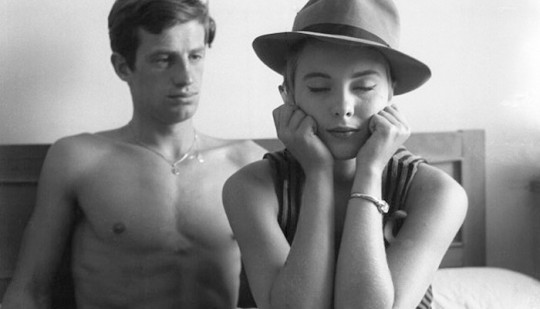
The Criterion Collection - July 2023 DVD, Blu-ray, & 4K Ultra Releases: BREATHLESS, AFTER HOURS, THE RANOWN WESTERNS, & More
https://film-book.com/the-criterion-collection-july-2023-dvd-blu-ray-4k/?feed_id=143181&_unique_id=6439fba237ddd
#HomeEntertainmentNews#AfterHours#Breathless#BuddBoetticher#CarlFranklin#CherylDunye#JeanLucGodard#MartinScorsese#OneFalseMove#TheCriterionCollection#TheRanownWesterns#TheWatermelonWoman
1 note
·
View note
Link
#TheWatermelonWoman#NationalFilmRegistry#Film#Director#Actor#Writer#BehindtheScenes#BehindtheCamera#BTS
0 notes
Text
Thoughts : The Watermelon Woman (1996)
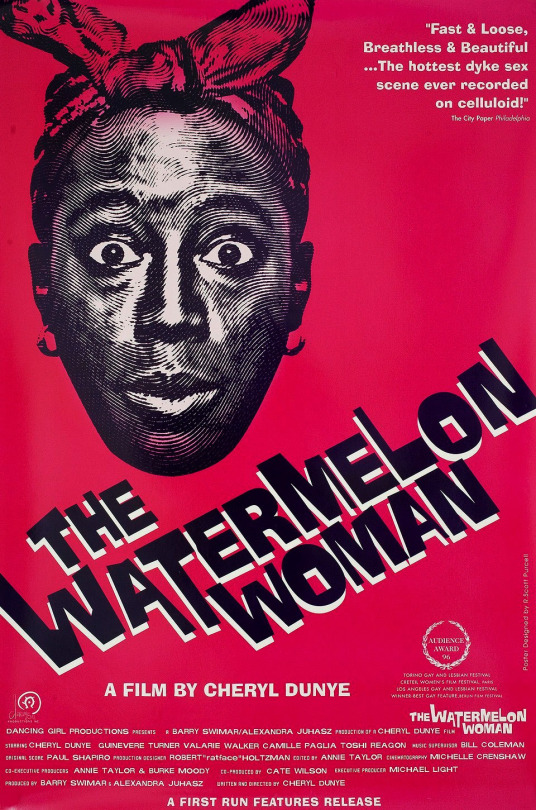
The Watermelon Woman, a film written, directed and edited by Cheryl Dunye, is one of those films that often comes up in conversation or in think pieces on film, but somehow and someway, I never seem to find the time or opportunity to actually sit down and watch it. Maybe it had something to do with my knowledge of Melvin Van Peebles’ Watermelon Man, and my mind’s weird way of connecting material in odd ways. While it is easy to associate the two films by name, that is really and truly the only association to be made, and after viewing The Watermelon Woman, all I can do is kick myself for having not seen it sooner.
Amateur videographer and aspiring filmmaker Cheryl (Cheryl Dunye) knows that she wants to break into the film industry, and after a lengthy search for inspiration, she finds her film subject... a 1930’s Black actress credited as The Watermelon Woman (Lisa Marie Bronson). Despite the lack of support from fellow videographer and video store coworker Tamara (Valarie Walker), Cheryl decides to push forward with her documentary in hopes of uncovering more information about the mysterious actress, and her journey crosses her paths with several interesting parties : Tamara’s mother June (Cheryl Clarke), a film historian named Brian Freeman (Lee Edwards), Camille Paglia (herself) and a former friend of The Watermelon Woman and June named Shirley Haminlton (Ira Jefferies), who informs Cheryl that The Watermelon Woman’s real name is Fae Richards. Tamara is pushing to hook up Cheryl with her friend Yvette (Kathy Robinson), but Cheryl has no interest in a relationship, at least not until she crosses paths with an attractive video store customer named Diana (Guinevere Turner). With Cheryl’s project already making her and Tamara’s friendship a rocky one, the emergence of Diana further causes a rift, which forces Cheryl to make some difficult choices about how to proceed with her project and her life.
Positioning the film as a mockumentary of sorts blurs the line between fiction and reality, which allows writer, director and editor Cheryl Dunye to interject actual history into her narrative. Her documentarian efforts allow her to sit down with a number of different people that provide her a wide range of insight in regard to Black film history and the often stereotypical roles given to Black women. Over the course of the film, we as viewers are presented with historical information about Black women in film, the history of Black culture in pre-World War II Philadelphia, and a bit of history about the lesbian experience in the past. Despite much of the film being presented as a mockumentary, with all sides of production depicted, there is a strong enough presence of a romantic film that more traditional viewers can hang on to… in some ways, it feels like the main plot of investigating The Watermelon Woman and the B-plot of Cheryl and Diana’s romantic arc may have been a mix of two ideas in hopes of creating a singular strong idea.
Cheryl Dunye makes sure that her identity as a member of “the Family” is given just as much importance as her identity as a Black woman filmmaker, which gives her film characterization a parallel path of discovery and education as she finds herself involved in a romantic relationship with Diana. Making this story a slightly altered echo of the Fae Richards and Martha Page relationship helps root the romantic and dramatic aspects of the film by providing the theatrical aspects that offset the historical ones and provide balance. The romantic aspects of the film are also given the same level of detail and attention as the main plot, making the relationship between Cheryl and Diana, Tamara’s frustrations with women, and the revelation of the numerous gay and lesbian members of the film industry’s past all interesting in their own rights. Dunye also manages to portray her mostly gay and lesbian characters as fully fleshed out people, and not the one note caricatures that they are often displayed as in less nuanced films.
In many ways, the presentation of The Watermelon Woman reminds me of Kevin Smith’s cult classic debut Clerks, particularly in the way that very genuine-seeming moments of life are captured with a fly on the wall approach, with the honest nature of the friendships and relationships, and even little touches such as the video store location. While there are a number of great underground songs from the late 1990′s used in the soundtrack to the film, they are smartly used diegetically rather than a tool to amplify or add subtext to what is going on on-screen, and in turn, it makes the film feel much more vérité than fictionalized reality. The rawness of South Philadelphia is captured in all of its glory, and as a fan of hip-hop culture, the insane amount of graffiti handstyles captured is like a little hidden golden time capsule of background textures. Using a frame aspect ratio rather than attempting to force a widescreen aspect ratio not only gives the film the purposefully amateur feel and tone it seeks to set, but it also creates a proximity and intimacy among the characters due to real estate within the frame.
Cheryl Dunye, with all the production tasks already on her plate, still manages to give a performance that sells her inquisitive nature and reveals her vulnerable side, particularly with romantic matters. Valarie Walker brings tons of attitude to the table to help give the indication of an antagonist in a film absent of one, which helps bring a bit of dramatic tension into the mix. Guinevere Turner provides a spark in a film centered around serious matters, which helps bolster the romantic side of the film. Cheryl Clark, Lee Edwards, Ira Jefferies and Camille Paglia (in an appearance that is a slight parody of herself) do a good job of acting out their informational-based sequences, with plenty of personality used to provide said information. Supporting appearances by Shelly Olivier, Christopher Ridenhour, Kat Robertson, Jocelyn Taylor, Alexandra Juhasz, Lisa Marie Bronson, Patricia Ellis, Irene Dunye, Sarah Schulman and more stand out.
While I will definitely keep this film in the back pocket as a general recommendation, I will be especially mindful to bring it up to aspiring filmmakers hung up on presentation, as well as those who are looking to tell non-traditional stories and cannot find inspirational material. Including Cheryl Dunye’s pivotal film in my exploration of Black filmmakers for Black History Month felt like a must, and experiencing the film validated those feelings.
#ChiefDoomsday#DOOMonFILM#CherylDunye#TheWatermelonWoman#ValerieWalker#GuinevereTurner#CherylClark#LeeEdwards#IraJefferies#CamillePaglia#ShellyOlivier#ChristopherRidenhour#KatRobertson#JocelynTaylor#AlexandraJuhasz#LisaMarieBronson#PatriciaEllis#IreneDunye#SaraSchulman
0 notes
Photo
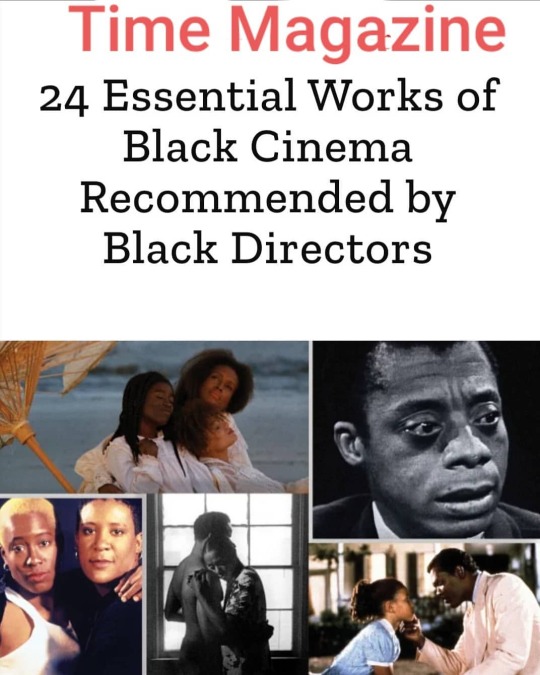
🎬 #ArtIsAWeapon #BlackFilms Via @time www.Time.com - 24 Essential Works of Black Cinema Recommended by Black Directors. Calls for greater inclusion in Hollywood have been at the forefront of recent cultural conversations, after decades upon decades of resistance to change. But even as the barriers to entry have been great and opportunities for Black filmmakers less available due to the larger forces of systemic racism, Black artists have been creating remarkable and culturally significant work since the early days of filmmaking, across many genres and styles. The importance and beauty of Black cinema lies not only within its storytelling, but also in the visibility of its creators, both on- and off-camera, as models of what is possible. The ability to tell a story from one’s own perspective and on one’s own terms is freeing, and it has proven essential to the legacy of Black film. Read more and see the list at www.time.com Image credits - Clockwise from top left: #DaughtersoftheDust, #IAmNotYourNegro, #EvesBayou, #KillerofSheep, #TheWatermelonWoman. Cohen Media Group/Everett; Magnolia Pictures/Everett; Mary Evans/Ronald Grant/Everett; Milestone Film & Video/Everett; First Run Features/Everett #TimeMagazine #BlackCinema #BlackFilms #BlackMovies #BlackFilmmakers #EssentialBlackFilms #BlackStorytellers #BlackDirectors #BlackActors #TraScapades #BlackGirlMovieGeeks https://www.instagram.com/p/CEuFXDAAwXX/?igshid=solvqth34089
#artisaweapon#blackfilms#daughtersofthedust#iamnotyournegro#evesbayou#killerofsheep#thewatermelonwoman#timemagazine#blackcinema#blackmovies#blackfilmmakers#essentialblackfilms#blackstorytellers#blackdirectors#blackactors#trascapades#blackgirlmoviegeeks
0 notes
Photo
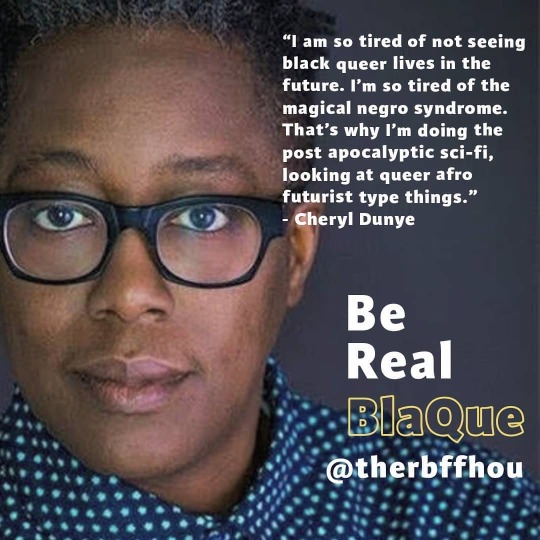
Writer-director Cheryl Dunye best known for her film “The Watermelon Woman” made #history as the first #black #lesbian to #director to direct a #feature #film . Dunye’s recent credits include episodes of “The Fosters,” “Claws,” and “Queen Sugar.” “Valencia,” “Mommy Is Coming,” and “The Owls” are among her feature films. Her two films in development: "The Wonder of All Things" and a feature version of her short film “Black Is Blue". @cheryldunye #thewatermelonwoman #lgbt #lgbtq #blackqueer (at Houston, Texas) https://www.instagram.com/p/CCcMIZYHUCu/?igshid=1m9magpzfoo6x
0 notes
Photo
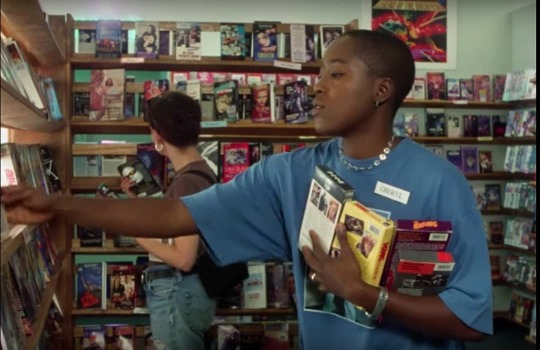
Welcome back to the #CoronavirusFilmFest , my #PentInQuarantinos . Today we have the funny, faux-documentary "The Watermelon Woman"(1996). Cheryl (Played by director Cheryl Dunye) is a filmmaker. She keeps saying she works at a video store, but that is where her research begins earnestly to find a black actress only credited as the Watermelon Woman in her 🎥. What happens is an examination of white privilege, white lesbian privilege and how to score weird porn so your boss can't figure out it's you at work (pre-internet we had to be hunter/gatherers of the 1st class to find porn). #thewatermelonwoman #faerichardson #cheryldunye #blackfilmmatters #blackfilmmakers #queerfilm #queerfilmmakers https://www.instagram.com/p/CBqpaJpDxCF/?igshid=2vunkf78rmj5
#coronavirusfilmfest#pentinquarantinos#thewatermelonwoman#faerichardson#cheryldunye#blackfilmmatters#blackfilmmakers#queerfilm#queerfilmmakers
0 notes
Video
The Watermelon Woman. Directed by Cheryl Dunye. Released in 1996. #reelqueer #moviemonday #hypnocam #lgbtqfilm #thewatermelonwoman @cheryldunye @guinevereturner
0 notes
Photo
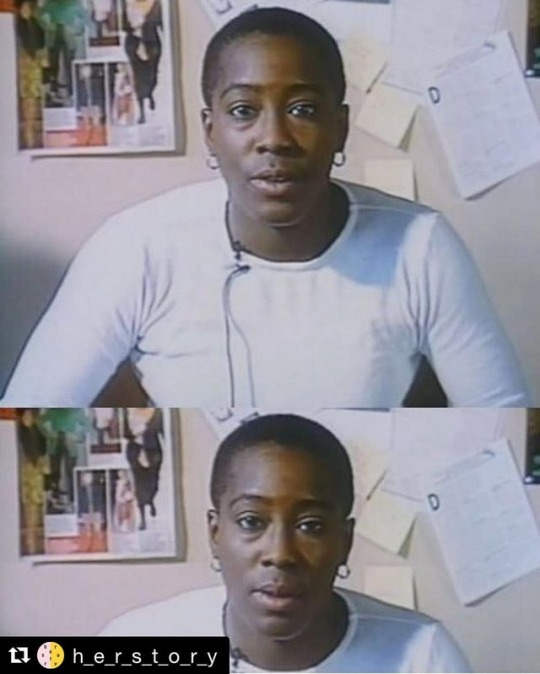
@h_e_r_s_t_o_r_y “Hi, I’m Cheryl and I’m a filmmaker. Uh, no, I’m not really a filmmaker, but I have a videotaping business with my friend Tamara and I work at a video store, so I’m working on being a filmmaker. The problem is I don’t know what I want to make a film on. I know it has to be about black women because our stories have never been told, so I’ve been renting movies — no, I haven’t been renting movies, but I get movies from the video store I work at and I’ve taken out all these films from the 30s and 40s with black actresses in them, like, um Hattie McDaniel and Louise Beavers and um, in these films, in some of these films, the black actresses aren’t even listed in the credits and I was just totally shocked by that.” OPENING MONOLOGUE FOR THE 1996 FILM BY @cheryldunye THE WATERMELON WOMAN 🍉🍉@h_e_r_s_t_o_r_y presents the film at GOLDEN AGE CINEMA in SYDNEY Australia @ourgoldenage on NOVEMBER 22. Get tickets now, link in bio. I’ll be posting fave scenes from the film once a day until 11/22. 💕 MUST SEE LESBIAN FILM, black lesbian film, QPOC film, film!! 💕 #lesbianculture #cheryldunye #thewatermelonwoman #blacklesbianarchives
0 notes
Photo
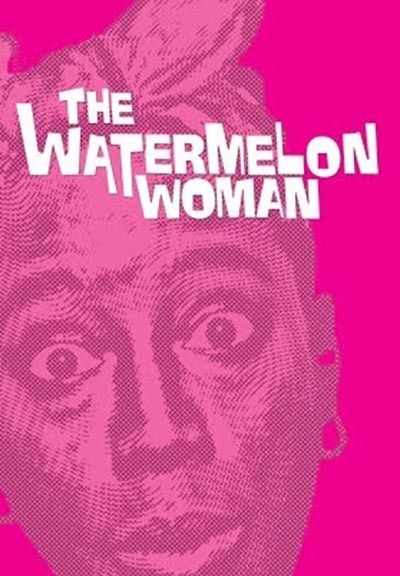
[#FILM] Films at the Schomburg: #TheWatermelonWoman
Wednesday, March 15 | 6:30pm
@SchomburgCenter | 515 Malcolm X Blvd. New York, NY
Admission: Free
Register
In honor of Women’s History Month, the Schomburg Center is proud to present a 20th anniversary screening of Cheryl Dunye’s groundbreaking film, The Watermelon Woman, which in 1996 became the first feature film by a queer African-American woman. The lead character, played by Dunye (who also wrote and directed the film), finds parallels between herself and 1930s actress Fae Richards, popularly known as “The Watermelon Woman,” a domestic servant stereotype or “Mammy” played by many black women in her time.
The film explores the historical exclusion of black queer women working in Hollywood.
youtube
0 notes
Photo
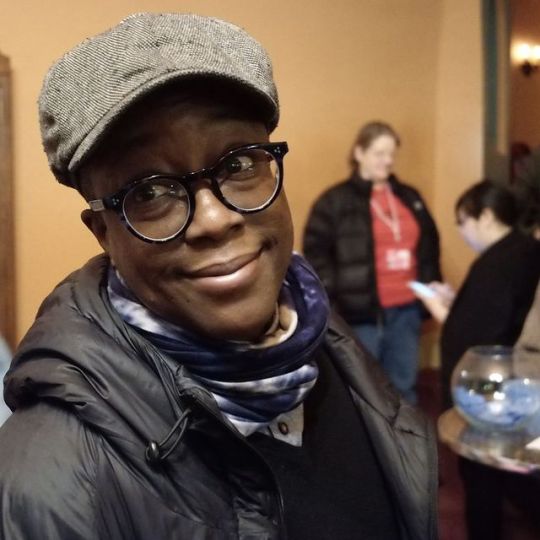
Fun and enlightening night at POWFest celebrating guest of honor, the great Cheryl Dunye! The evening included an insightful inter-generational discussion about queer cinema and the legacy of Dunye's THE WATERMELON WOMAN with Kathleen Gunnell Saadat and Llondyn Elliot (picture 3 right to left) #womendirect #queerfilm #TheOwls #TheWatermelonWoman #filmmaker #indiefilm #52FilmsbyWomen #filmmaking #LGBTQFilm #thisiswhatadirectorlookslike via Instagram http://ift.tt/2mIWKNp
0 notes
Link
1 note
·
View note